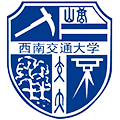Study in Southwest Jiaotong University About Southwest Jiaotong University & Study in swjtu
About Southwest Jiaotong University
Southwest Jiaotong University (SWJTU) was founded in 1896 and is one of China’s oldest higher education institutions. Known as the cradle of China’s railway engineers and “the Cornell of the East”, SWJTU is the birthplace of China’s modern education in transportation, mining & metallurgy and civil engineering. Through its history, the university has adopted different names such as “Imperial Chinese Railway College at Shanhaiguan by Beiyang Railway Bureau”, “Tangshan Jiaotong University” and “Tangshan Institute of Railway”.
Today’s SWJTU is situated in Chengdu, capital of southwest China’s Sichuan province. The city is dubbed as the land of abundance, the homeland of the giant panda and the place of fortune and success. The university has a total area of approximately 333 hectares and has three campuses. They are the Jiuli campus, the Xipu campus and the Emei campus which is located in the Emei Mountain Scenic Area, a famous tourist destination included in the World Heritage List by UNESCO. SWJTU is a premier engineering university and is on the list of China’s first batch of 211 Project universities. It is also a university in the “985 Project Innovation Platform on Rail Transit & Transportation Engineering”. The university focuses on a balanced development of multidisciplinary subjects of engineering, science, business management, finance, arts and law. It is one of China’s top universities with a government ratified Graduate School under the direct administration of the Ministry of Education. The university leads the project to set up the “Rail Transit Safety Collaborative Innovation Center”, which is listed in the national “University Innovation Capability Enhancement Plan”, also known as the “2011 Plan”. The other titles granted by the Ministry of Education include being a member of the first batch of universities to pilot the “Excellent Engineer Education and Training Program” and the “Comprehensive Reform on Professional Degree Graduate Education”.

